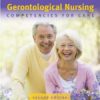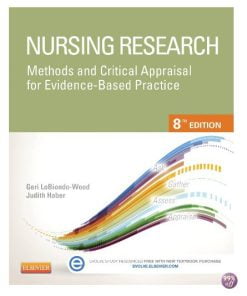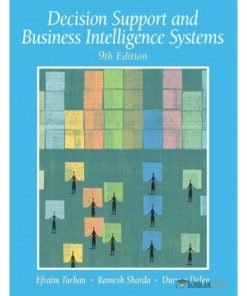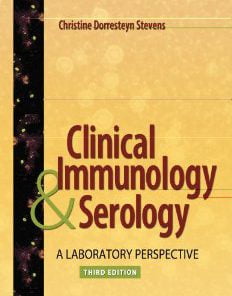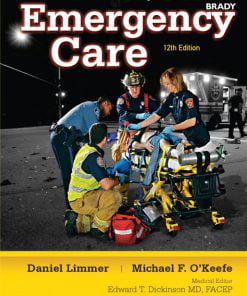Test Bank for Adult Development and Aging, 6th Edition: Cavanaugh
$35.00 Original price was: $35.00.$26.50Current price is: $26.50.
Test Bank for Adult Development and Aging, 6th Edition: Cavanaugh
Instant download Test Bank for Adult Development and Aging, 6th Edition: Cavanaugh pdf docx epub after payment.

Product details:
Author: John C. Cavanaugh
Written within a biopsychosocial framework, Cavanaugh and Blanchard-Fields’ best-selling text covers the specific ages-stages of adult development and aging. In its unparalleled coverage of current research and theory, the authors draw clear connections between research and application. The book’s focus on “positive aging” and the gains and losses people experience across adulthood distinguish it from its competitors.
Table of contents:
Preface v
Chapter 1 Themes and Issues in Adult Development and Aging 1
The Biopsychosocial Perspective 2
Four Principles of Adult Development and Aging 3
1. Changes Are Continuous Over the Life Span 3
2. Only the Survivors Grow Old 4
3. Individuality Matters 5
4. ”Normal” Aging is Different From Disease 6
The Meaning of Age 7
Using Age to Define ”Adult” 8
Divisions by Age of the Over-65 Population 9
Functional Age 9
Personal Versus Social Aging 10
Key Social Factors in Adult Development and Aging 12
Sex and Gender 12
Race 13
Ethnicity 13
Socioeconomic Status 14
Religion 14
The Baby Boomers Grow Up: Changes in the Middle-Aged and Older Populations in the United States and the World 14
United States 15
Aging Around the World 17
Summary 19
Chapter 2 Models of Development: Nature and Nurture in Adulthood 21
Key Concepts in the Study of the Life Span 22
Models of Individual–Environment Interactions 23
Reciprocity in Development 25
Sociocultural Models of Development 25
Ecological Perspective 26
The Life Course Perspective 27
Ageism as a Social Factor in the Aging Process 28
Psychological Models of Development in Adulthood 31
Erikson’s Psychosocial Theory 31
Piaget’s Cognitive-Developmental Theory 33
Identity Process Theory 34
The Selective Compensation with Optimization Model 37
Biological Approaches to Aging in Adulthood 38
Genes and DNA 38
Programmed Aging Theories 40
Random Error Theories 42
Summary 44
Chapter 3 The Study of Adult Development and Aging: Research Methods 47
Variables in Developmental Research 48
Descriptive Research Designs 49
Age, Cohort, and Time of Measurement 49
Longitudinal Designs 50
Cross-Sectional Designs 53
Sequential Research Designs 55
The Most Efficient Design 55
Correlational Designs 56
Simple Correlational Designs 56
Multivariate Correlational Designs 57
Types of Research Methods 59
Laboratory Studies 59
Qualitative Studies 59
Archival Research 59
Surveys 60
Epidemiological Studies 60
Case Reports 60
Focus Groups 61
Daily Diaries 61
Observational Methods 61
Meta-Analysis 62
Measurement Issues in Adult Development and Aging 62
Ethical Issues in Research 63
Summary 65
Chapter 4 Physical Changes 67
Appearance 68
Skin 68
Hair 70
Body Build 71
Mobility 73
Muscles 73
Bones 75
Joints 75
Vital Bodily Functions 77
Cardiovascular System 77
Respiratory System 79
Urinary System 79
Digestive System 81
Bodily Control Systems 81
Endocrine System 81
Immune System 85
Nervous System 85
Central Nervous System 85
Sleep 88
Temperature Control 89
Sensation and Perception 89
Vision 89
Hearing 91
Balance 92
Smell and Taste 94
Somatosensory System 94
Summary 95
Chapter 5 Health and Prevention 97
Key Concepts in Health and Prevention 98
Diseases of the Cardiovascular System 98
Cardiac and Cerebrovascular Conditions 99
Incidence 100
Behavioral Risk Factors 100
Prevention of Heart Disease and Stroke 102
Cancer 103
Risk Factors and Prevention 103
Treatments 105
Disorders of the Musculoskeletal System 105
Osteoarthritis 105
Osteoporosis 106
Diabetes 107
Characteristics of Diabetes 107
Incidence and Risk Factors 107
Prevention and Treatment 108
Respiratory Diseases 108
Neurocognitive Disorders 109
Alzheimer’s Disease 110
Other Forms of Neurocognitive Disorder 116
Summary 118
Chapter 6 Basic Cognitive Functions: Information Processing, Attention, and Memory 119
Processing Speed and Attention 120
Reaction Time 120
Attention 120
Video Games and Attention 124
Driving and Aging 124
Memory 127
Working Memory 128
Effects of Aging on Long-Term Memory in Adulthood 129
Psychosocial Influences on Memory 131
Memory and Health-Related Behaviors 132
Memory Training Studies 134
Summary 136
Chapter 7 Higher-Order Cognitive Functions 139
Executive Functioning and its Measurement 140
Intelligence Tests 140
Neuropsychological Assessment 141
Aging and Executive Functioning 142
Language 143
Cognitive Aspects of Language 143
Social Aspects of Language 145
Bilingualism and Aging 146
Everyday Problem Solving 146
Characteristics of Problem Solving 146
Problem Solving in Adulthood 147
Adult Learners 150
Intelligence 151
Theoretical Perspectives on Adult Intelligence 152
Research on Adult Intelligence 153
Training Studies 157
The Psychology of Wisdom 157
Summary 159
Chapter 8 Personality 161
Psychodynamic Perspective 162
Ego Psychology 162
Vaillant’s Theory of Defense Mechanisms 166
Adult Attachment Theory 167
Trait Approaches 168
People also search:
Adult Development and Aging
Adult Development and Aging Cavanaugh
Adult Development and Aging Cavanaugh 6th
Adult Development and Aging Cavanaugh 6th Test Bank
Test Bank for Adult Development and Aging, 6th Edition: Cavanaugh Download
Related products
Test Bank
Test Bank for Essentials of Business Law and the Legal Environment, 11th Edition: Richard A. Mann
Test Bank
Test Bank for Decision Support and Business Intelligence Systems, 9th Edition: Efraim Turban
Test Bank
Test Bank for Clinical Immunology and Serology A Laboratory Perspective, 3rd Edition: Stevens


